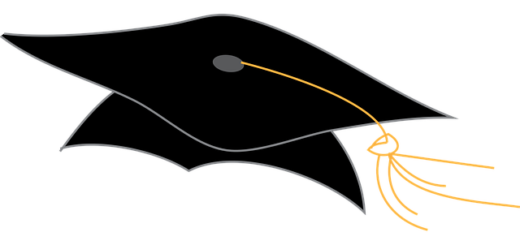Reflecting on Online Learning and Instructional Design
Over the last 5 weeks we have been investigating the instructional design of an online course. As with all my learning as I go through a project I learn about some new things but more importantly I learn more about myself. This past month I have confirmed many of my beliefs but also pushed my thinking.
The first thing I confirmed was my belief in constructivism and the role of inquiry. You can see this from one of my first posts that included my I Believe video. I then further explored this in my learning theories post. I further cemented this belief that as educators we need to build learning environments that inspire and enable students to be curious. This curiosity, when strong enough, leads to inquiry which leads to learning. While I have tried to develop a fully online course, I strongly believe in the relationships and personal interactions that are easier in a blended environment as discussed in my new challenge post. One of the things I did learn in my research this month is that we need to build a community of inquiry. As Garrison, Archer and Anderson point out this community need to contain three essential elements:
- social presence ” is the ability of participants to identify with the community (e.g., course of study), communicate purposefully in a trusting environment, and develop inter-personal relationships by way of projecting their individual personalities.”
- teaching presence is “the design, facilitation, and direction of cognitive and social processes for the purpose of realizing personally meaningful and educationally worthwhile learning outcomes”
- cognitive presence “is the extent to which learners are able to construct and confirm meaning through sustained reflection and discourse“. (Garrison, Anderson, Archer, 2000)
As I designed my course I hope I created these presences through relying on Understanding by Design (UbD).
I outlined my struggles in the beginning of building this course in my post about course design. I need to continually keep UbD in mind as I go forward designing my courses whether they are in person or online. If we do not start with the learning goals at the forefront of our minds, we often start adding extraneous information and lose our focus. UbD really brought me back to focuses on the essential questions and understandings I want my students to know at the end of the course. It also helps me make sure my formative and summative assessments lead back to those learning goals. Finally it helps me to remember that to reach those goals assessments don’t always have to be quizzes or tests, they can be check-ins for understanding and reflections.
My learnings this month continually bring me back to the thought that if we are going to prepare students for college and the world we need to include online and blended learning in our upper grades. Being successful in different learning environments is essential for all learner today. Very rarely are our students going to learn exclusively in the four walls of the classroom. We need to enable them to own their learning and curate resources that will help them accomplish their goals.
As I said in my last post, I believe an online course should be a requirement for graduation. And as I’ve discovered this month, teachers need to investigate more deeply course design so they are creating the best learning environments for their students in class, in a blended environment or online. I am interested in finding ways to create professional development models that support teachers to gain this understanding and apply it to their classrooms. Hopefully I’ll find the time to explore that in the coming months.
References
Bates, A.W. (2015) Teaching in a Digital Age: Guidelines for designing teaching and learning (Chapters 1 & 2). Retrieved from https://opentextbc.ca/teachinginadigitalage/
Garrison, R., Anderson, A. and Archer, W. (2000) Critical Inquiry in a Text-based Environment: Computer Conferencing in Higher Education The Internet and Higher Education, Vol. 2, No. 3
Other Online Programs to Investigate
- I am currently trying to go through the Network+ Certification course on Udemyhttps://www.udemy.com/courses/ and have enjoyed it thus far. I have also looked at their Arduino and A+ courses.
- I am fascinated by the Harvard online Photography coursebut haven’t spent much time with it.
- We have had several students takeIndependent Study courses through BYU at my school and they seem to enjoy them
- I’ve started a few computer science courses through edx but never completed any
- We have used code.org for Hour of Code before at school and found success
- I have also done the javascipt class on Code Academy and enjoyed that as well
- Others I need to investigate further
- Apex Learning
- OdysseyWare
- Khan Academy
- Sophia


